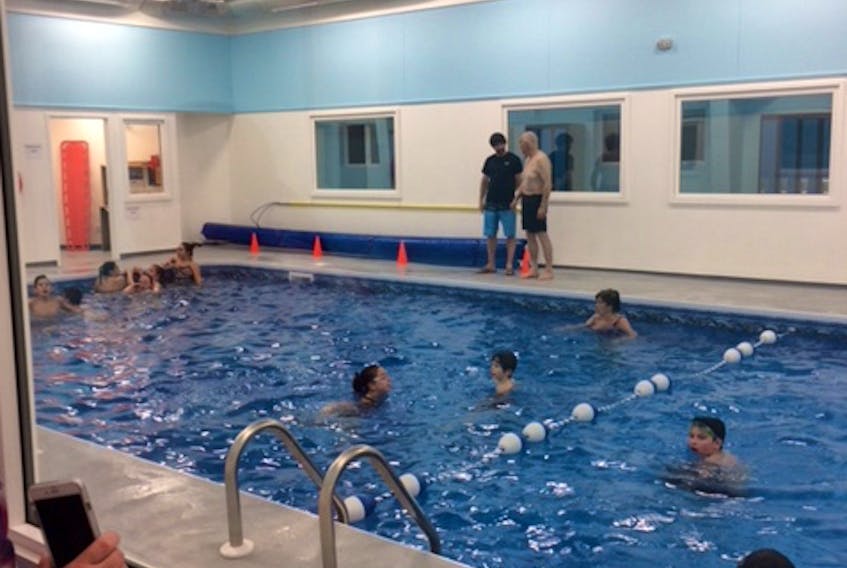While a pool operating in Cape St. George is better than Judy Chaisson dreamed it would be, she’s saddened the school swimming program is being cancelled.
That’s because her 10-year-old grandson, along with other students, won’t be able to take part in the program due to lifeguards not being available.
It was about a year ago the Town of Cape St. George paid for the training of three lifeguards – one a teenager attending high school for evenings, and two gym teachers, one from the English school in Cape St. George and the other from the French School in Mainland.
Related stories:
All of them received their certificate in bronze cross, which she said has been the standard for lifeguards some 30 to 40 years, so she wonders why suddenly this standard is no longer viable.
She said the town’s investment to have these lifeguards trained is gone and a year later they must update to a new national standard.
“I have no issue with higher standards, but if you’re going to have these new standards give adequate time to adjust for these changes to legislation,” Chaisson said. “National standards are fine for Olympic size pools, but don’t need to be applied to small community pools.”
Health Minister John Haggie said in the interest of people who use pools, government had no choice but to change the regulations last fall.
He said two years ago the regulations were changed for an extra qualification for lifeguards and moving the age from 17 years to 16 years to be eligible.
However, late last year a legal opinion came from the province’s justice department following a tragic drowning in Quebec that the bronze level regulations weren’t sufficient.
He said government had to bring in national standards involving getting a valid lifeguard certificate issued by the Royal Life Saving Society or the Canadian Red Cross.
“The regulations were very clear, that a full-fledged certified lifeguard is needed for a public pool and we had to do this right away,” he said.
Haggie said he realizes getting that qualification is time consuming, but the issue is of safety and liabilities for pool operators and the provincial government itself.
“If we (government) don’t support the regulations, then we are part of the problem not the solution,” he said.
Chaisson called the swimming programs for both schools, which became part of their physical education programming, a “marriage made in heaven.”
“It made active living a requirement and these kids saw this not as an option but as a necessity,” the retired educator said.
She believes Mayor Peter Fenwick was on the right path with the pool and feels he’s been sabotaged with this new legislation.
While the teen lifeguard was able to do the upgrade recently, both the teacher lifeguards were unable to do so due to personal commitments.
Chaisson believes it’s a real shame for her grandson, who is heavily involved in swimming and whose aim is to become a lifeguard when he reaches 16 years of age.
She said cutting out the program will hurt children as they do a lot better when positively reinforced.









